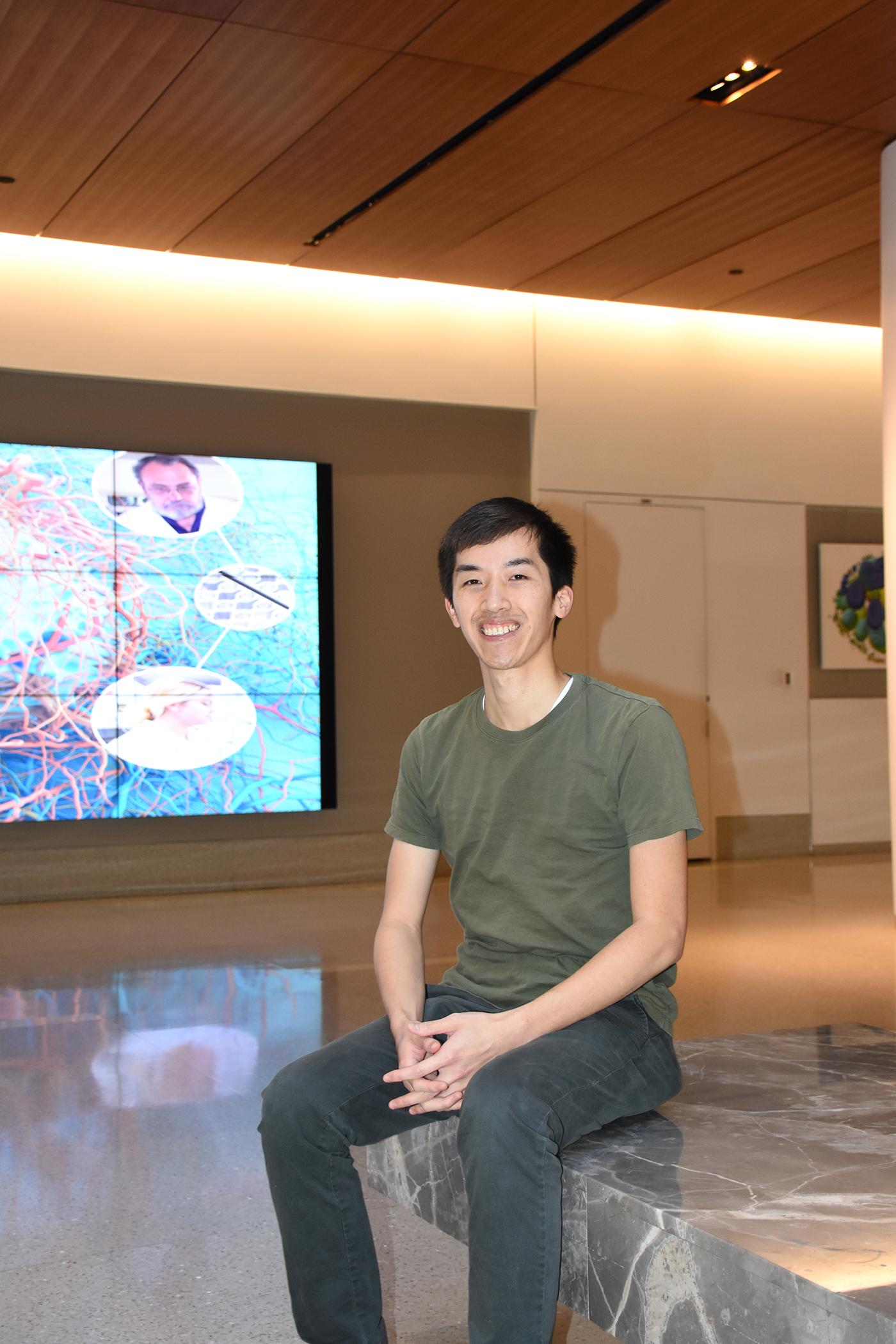Wistar’s Biomedical Research Technician (BRT) Apprenticeship was the country’s first biomedical research apprenticeship program. It came to fruition in 2017, formally approved by the Pennsylvania Department of Labor & Industry (L&I). And by 2019, L&I named it an outstanding non-traditional apprenticeship program. National Apprenticeship Week is close to the Institute’s core as our workforce development and training programs are a product of more than 20 years of working with partners in the biotechnology and biopharmaceutical industry as well as academia to create a highly specialized and up-to-date, hands-on training program that prepares students to be top candidates for jobs in labs now.
Here are two shining stars moving their way up in Wistar laboratories.

Jane Koshy
Jane Koshy is a research assistant in the lab of Dr. Mohamed Abdel-Mohsen. Her work supports Dr. Abdel-Mohsen’s HIV research on the role of sugar molecules present on immune cells and how that affects HIV infection and persistence.

Fenwick Tseng
Fenwick Tseng is a research assistant in the lab of Dr. Yulia Nefedova. Here Tseng manages many aspects of a busy lab focused on myeloid derived suppressor cells and the microenvironment in which they survive to better understand cancers of the blood and bone marrow.
Q&A
Q: What made you join the BRT Apprenticeship?
Fenwick A: I was interested in science when I was in high school. I finished my bachelor’s degree in biology but didn’t know what my next career step was. I connected to a Wistar employee, who told me about the Biomedical Technician Training (BTT) Program. I connected with Dr. William Wunner about the pre-apprenticeship and enrolled into the program through Community College of Philadelphia in 2020. However, when COVID hit that year, a new cohort was not able to start. In the summer of 2021, it was relaunched as an accelerated BTT Program, and by the end of the summer, I was finetuning my lab skills as a BRT apprentice with Dr. Yulia Nefedova.
Jane A: I was always interested in math and science, and I grew up exposed to this through my mother who has her Master’s in physics. I am a cautious person and went to college declaring myself undecided, but I felt at ease the most in biology class. At Community College of Philadelphia one biology teacher introduced me to the BTT Program. For me, I like to put my toe in the water before I jump in. And the BTT pre-apprenticeship was just that and exactly what I needed to expose myself to real lab research.
Q: What is special about the skills you learn in the BRT Apprenticeship?
Fenwick A: The BTT Pre-apprenticeship Program gives you training in many hands-on techniques, but the BRT Apprenticeship makes you a specialist in your lab. I never expected to have this kind of varied and skilled experience. I process blood samples and, for example, isolate white blood cells from blood to run experiments. I work with micropipettes, make stock solutions, carry out western blotting, ELISA, PCR techniques, and use complicated instruments and machines to sort and measure cells. I run analysis of cells that appear as a graph to see where the cell populations are and distinguish what cell types are present based on size and granularity.
Q: What is the BRT Apprenticeship training like?
Jane A: In college I took lab classes, and some exposed me to techniques and assays done in labs, but Wistar’s program gives you a perspective from people who are actually doing the lab work. A professor in a classroom setting can be more focused on teaching the theoretical science and is focused on all students, even though many of those students aren’t majoring in science. At Wistar with Dr. Kristy Shuda McGuire, Dean of Biomedical Studies, and Dr. Wunner, focus was on the nitty gritty details of research, lab techniques and proper lab habits. Visiting scientist mentors worked with us to drive home good habits to make your research go smoother. I learned adaptability and the foundations for carrying out assays and protocols quickly and smoothly. Wistar taught me what I need to know about how I learn best. You learn about yourself and apply good habits.
Q: What would you tell a prospective apprentice?
Fenwick A: If you are looking for a job and interested in science, then take advantage of any opportunities that come to you. More important is to be actively involved in an apprenticeship program like BRT and get hands on training. It’s one of the ways you can know for yourself that science is right for you. I would say to my younger self, just out of high school to ‘take all the opportunities out there and give yourself credit that you chose to take action.’ I did that. It’s easy to listen to other peoples’ stories, but it’s hard to make the decision to get up, act, find opportunities and take advantage of them.
Jane A: I don’t think I would have found the BTT Program if it wasn’t for that biology professor mentioning apprenticeship opportunities. At the time, I was thinking about becoming a physical or occupational therapist. This experience did pivot my career path. These programs are designed to give hands-on experience and a direct link to the work you might want to do. When you take that opportunity, you will see for yourself.